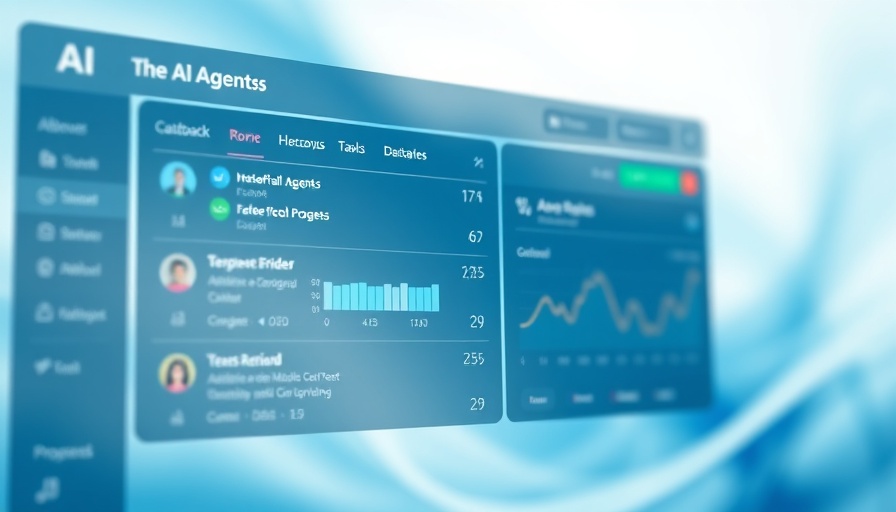
The Future of AI Agents: A Step Forward with OpenAI's Responses API
Artificial intelligence is rapidly evolving, and the inception of AI agents marks a significant chapter in this transformation. OpenAI is at the forefront of this shift, introducing a new “Responses API” designed to empower developers to create custom AI agents that can autonomously perform tasks for users. This revolutionary tool is set to replace the existing Assistants API within a year, positioning OpenAI as a key player in the burgeoning field of agentic AI.
What the Responses API Brings to the Table
The Responses API allows developers to harness OpenAI’s advanced language models to create AI agents capable of searching through both web and internal databases. This process not only enhances efficiency but also improves data accuracy—an essential requirement for businesses today. With features that mirror OpenAI's Operator agent, these AI agents can automate repetitive tasks such as data entry and document searches.
Accuracy and Limitations: Navigating the New Terrain
While the capabilities of the GPT-4o search and GPT-4o mini search models are impressive—achieving scores of 90% and 88%, respectively, on OpenAI's SimpleQA benchmark—there remains a significant caveat. The new models still generate factual errors in approximately 10% of responses. This raises questions regarding their reliability, especially in high-stakes environments where accuracy is paramount.
OpenAI has emphasized that developers should view the Responses API as an early iteration, with ongoing enhancements anticipated. As the platform matures, the potential for creating robust and efficient AI agents will only expand, pushing the boundaries of what is possible in AI-driven automation.
Engaging with the Ecosystem: The Added Benefits
The introduction of the open-source Agents SDK further enriches the developer ecosystem, offering tools for seamless integration of AI agents with existing systems. This toolkit provides developers with the framework to ensure their AI agents remain effective in their designated roles. With the added flexibility to implement safeguards and monitor agent activities, organizations can build trust in these systems as they adopt more AI functionalities.
Real-World Applications: A Promising Outlook
Real-world applications of the Responses API are vast. From customer support solutions that sift through FAQs to legal assistants managing case histories, the potential to streamline operations is enormous. The capacity to navigate company-specific data while integrating broader web insights can significantly enhance decision-making processes across industries.
As evidenced by the hype surrounding a recent AI agent introduction from a Chinese startup, the demand for effective solutions is palpable. Yet, the mixed results of such offerings highlight the need for critical engagement with these technologies, urging developers to focus on practical implementations rather than exaggerated promises.
Conclusion: The Path Ahead for AI Integration
The launch of the Responses API and accompanying Agents SDK brings us closer to realizing the vision of AI agents permeating various facets of business operations. However, the adoption of these technologies requires an informed approach—understanding their capabilities and limitations is critical for success. As organizations evaluate how to integrate AI into their strategies, the insights offered by OpenAI’s new tools may very well shape their operational futures.
As with any emerging technology, the key to harnessing AI effectively lies in continuous learning and adaptation. Now is the time for organizations to explore the possibilities afforded by AI agents, leveraging the insights shared by OpenAI to carve out innovative pathways into the future of work.
 Add Row
Add Row  Add
Add 




Write A Comment